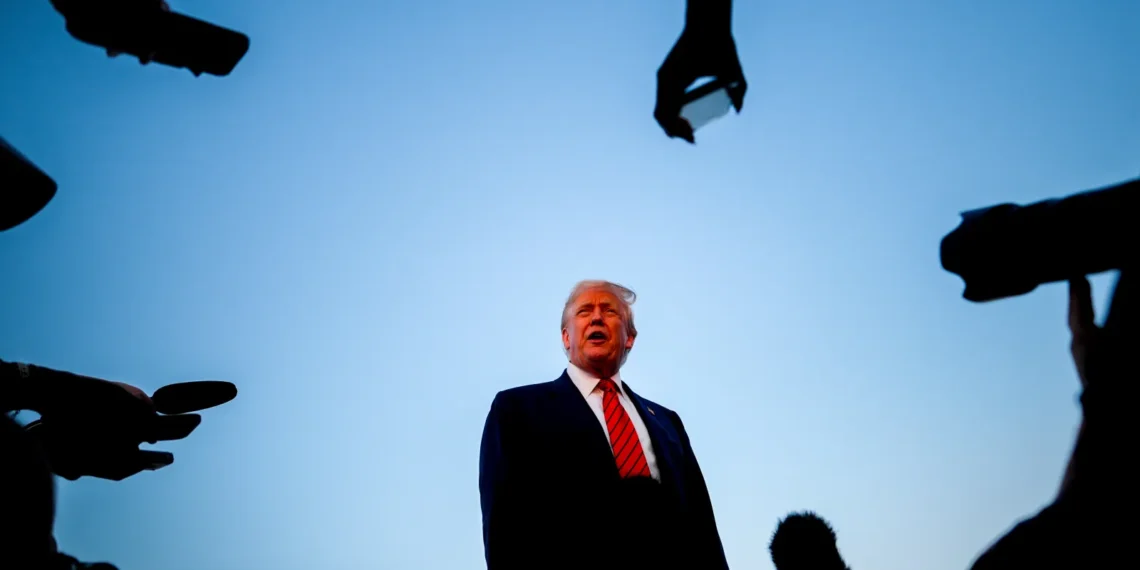A legal firestorm is brewing in California as The Stanford Daily, in partnership with the Foundation for Individual Rights and Expression (FIRE), has filed a landmark lawsuit against former U.S. President Donald Trump, Secretary of State Marco Rubio, and Homeland Security Secretary Kristi L. Noem. The lawsuit, filed in the Northern District of California, accuses the Trump administration of weaponizing immigration law to silence international students who express political opinions, particularly those critical of American and Israeli foreign policy.
At the heart of the case is a challenge to the administration’s use of the Immigration and Nationality Act to initiate visa revocations and deportation proceedings against law-abiding noncitizens engaged in protected political speech. According to court documents, this approach violates constitutional free speech protections and poses a serious threat to the integrity of campus journalism and academic freedom.
“Secretary of State Marco Rubio and the Trump administration are trying to turn the inalienable human right of free speech into a privilege contingent upon the whims of a federal bureaucrat,” the lawsuit claims, “triggering deportation proceedings against noncitizens residing lawfully in this country for their protected political speech.”
FIRE, which is representing The Stanford Daily along with two unnamed former students, argues that fear of retaliation has forced student journalists to self-censor. The complaint notes that one student reporter resigned, while others have withheld their work, removed their bylines, or demanded the removal of published articles. The newspaper’s editor-in-chief, Greta Reich, said the chilling effect has created an atmosphere where students are afraid of being associated with political topics, even when reporting on them journalistically.
The lawsuit also outlines instances of surveillance and detention targeting international students who have spoken out against Israel’s military actions in Gaza. Among those reportedly detained without charge are Mahmoud Khalil of Columbia University, Rumeysa Ozturk of Tufts University, and Badar Khan Suri of Georgetown University. The students were not accused of any crimes but were allegedly subjected to scrutiny based on their political expression.
Read Also:
- Hundreds of ex-Israeli security officials write Trump to help end Gaza war
- OECS students on scholarship to commence studies in Nigerian varsities next academic year – Tinubu
- UNIZIK Law student dies after being locked out of hostel room
One plaintiff in the case, who remains on a student visa, claims she was listed on the controversial Canary Mission website after posting pro-Palestinian and anti-Israel views online. She stopped all political posting in March out of fear. Another plaintiff reportedly shelved an academic paper critical of Israel’s military campaign, citing fears of government retaliation. He has since resumed commentary despite the ongoing risk of visa cancellation and deportation.
FIRE’s supervising senior attorney, Conor Fitzpatrick, emphasized that the case is not about criminal activity but about punishing lawful residents for their opinions. “This is an administration that is brazenly going after law-abiding noncitizens for doing nothing more than voicing an opinion that the government of the day doesn’t like,” he said.
When contacted, a senior State Department official declined to comment directly on the case, stating only, “We direct you to the Secretary’s statements regarding the obligations of visa holders and other aliens to comply with U.S. law.” The Department of Homeland Security did not respond to repeated requests for comment.
The lawsuit warns of a growing campaign to suppress dissent on American campuses through immigration enforcement tactics. “Secretary Rubio and the Trump administration’s war against noncitizens’ freedom of speech is intended to send an unmistakable message: Watch what you say, or you could be next,” the complaint reads. “Message received.”
As the case unfolds, it raises critical questions about the limits of free speech, the rights of international students, and the future of political discourse in American higher education.






